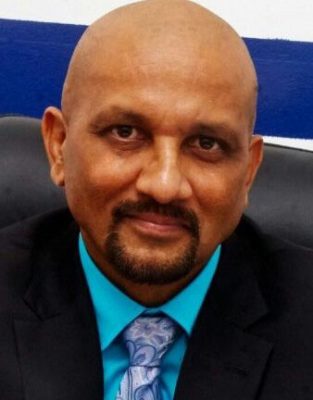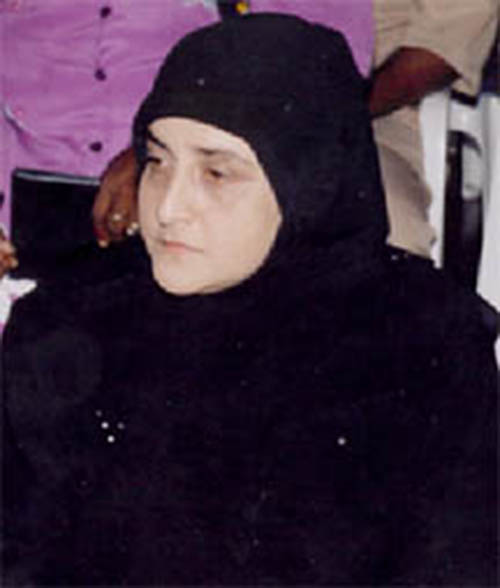Section 72 of the Criminal Law (Procedure) Act which empowers the Director of Public Prosecutions (DPP) to order the committal of a murder accused for trial even though a Magistrate may have found no prima facie evidence to so do, came under extensive scrutiny before the Caribbean Court of Justice (CCJ) yesterday.
The Trinidad-based court of last resort for Guyana was at the time hearing the appeal filed by Marcus Bisram, who is challenging the ruling of the local appellate court which overturned a decision of the High Court quashing an order the DPP had made, directing that he stands trial for murder.
Bisram had been charged for the 2016 murder of Berbice carpenter Faiyaz Narinedatt.

Following a preliminary inquiry (PI) at which he was discharged by a Magistrate, Bisram was rearrested on the direction of DPP Shalimar Ali-Hack, who invoked her powers under Section 72, ordering that he be committed to face trial before a judge and jury.
The Appellant’s contention is that Section 72 is unconstitutional in view of Article 122 A (1) of the Constitution by which it is trumped, because of its supremacy over other laws.
Yesterday’s hearing saw a heated debate between the DPP and Queen’s Counsel Darshan Ramdhani for Bisram who argued that Section 72 in effect interferes with the independence of the judiciary as provided for in Article 122.
He submitted that Section 72 is on a “collision course” with the Constitution and for that reason ought to be modified or repealed.
Ali-Hack, however, disagreed, advancing that the exercise of her powers under Section 72 is not only lawful, but reasonable.
She embraced the ruling of the local appellate court in this regard.

Ramdhani, however, took particular issue with the local appellate court’s finding that the independence of the judiciary referenced in Article 122 does not refer to the magistracy. He contends that this was among the grave errors committed by the Guyana Court of Appeal.
Article 122 A provides, “all Courts and all persons presiding over the courts shall exercise their functions independently of the control and direction of any other person or authority; and shall be free and independent from political, executive and any other form of direction and control.”
Referencing excerpts from its ruling, however, Ramdhani said the local appellate court fell into error when it reasoned that Article 122 does not contemplate the inclusion of magistrate courts, but rather only high courts and the Court of Appeal.
He said that having regard to the supremacy of the constitution and the sacrosanct nature of its provisions, the Court of Appeal was wrong in concluding that a mere Act of Parliament by way of Section 72, could trump Article 122 of the Constitution.
He said that the local Court of Appeal also erred in its finding that the independence referred to in Article 122 did not extend to the magistracy because those courts do not address constitutional issues, but rather have to forward such matters to the High Court.
Ramdhani argued that the “independency” to which the Constitution refers, applies to all courts, and not just the High Court and Court of Appeal.
He further argued that Section 72 in fact infringes on the separation of powers doctrine which also bolsters the independence of the courts and for which reason Section 72 must “stand down” and yield to Article 122 and as well as 144 of the Constitution—the latter by which a fair trial is guaranteed.
It was against this background he vehemently argued that the power given to the DPP in Section 72, interferes with the independence to which all courts are entitled—if a Magistrate can be directed—not by a court superior to it, but the DPP, that an order has to be followed, notwithstanding the Magistrate’s own finding.
Ramdhani submitted that the existence of Section 72 takes away from the fairness of a trial.
In asking the CCJ to set aside the ruling of the Guyana Court of Appeal, Ramdhani asked alternatively for modifications to be made to Section 72 to bring it in conformity with Article 122, or that it be repealed altogether.
Ali-Hack in her submissions sought to argue that while her power is exercised as a quasi-judicial one, it is more administrative and does not take away from the independence which the court has since “the final decision rests with the judiciary.”
The Full Bench of the CCJ hearing the appeal, however, took her to task over this statement, with Justice Adrian Saunders enquiring whether it was her position that the final decision regarding “committal” would rest with the judiciary.
She then sought to retract and said “the final decision in relation to the hearing of the case,” arguing that the PI is only a stage in the entire hearing process of a case.
Justice Saunders, however, pointed out that the PI being a stage in the hearing was not the dilemma with which the CCJ was confronted and has to adjudicate on, but instead whether it was right that the DPP—as a litigant itself before the Magistrates Court “is vested with the power to direct the [Magistrate’s] Court on what it should and should not do in a matter in which the litigant [the DPP] is a party.”
“Doesn’t that strike you as being odd?” Justice Saunders asked Ali-Hack.
In response, the DPP advanced that the Magistrate does not make a final decision in a PI. “It is a preliminary procedure, the trial is in the High Court,” she said; while adding that “the High Court is where the final decision is.”
Contending that she had been circuitous with her response to Justice Saunders, Justice Denys Barrow told Ali-Hack that she simply could not get away from the fact that there is a decision at the conclusion of a PI “to commit or not to commit.”
She conceded this point when Justice Barrow further pointed out that following a Magistrate’s decision not to commit, what Section 72 in fact does, is allow the DPP to overrule and impose on the decision which the Magistrate would have made.
“The Director is imposing on the Magistrate a decision that you [the Magistrate] shall commit,” Justice Barrow noted.
Though on the one hand Ali-Hack conceded the observation made by the Bench; she went on to argue, “But it’s an administrative act,” to which Justice Barrow firmly cautioned, “it does not matter if it’s an administrative decision.”
“The Director [of Public Prosecutions] is imposing upon the Magistrate a directive that you shall do this…,” Justice Barrow stressed to her as being the true effect of Section 72, even though the Constitution provides for the independence of the courts.
The Bench has indicated that it will take time to consider the submissions and reserve its judgment for a date to be announced.
The appeal was heard by President of the CCJ Justice Saunders; along with Justices Barrow, Maureen Rajnauth-Lee, Andrew Burgess, Jacob Wit, Peter Jamadar and Winston Anderson.
A year ago Bisram was extradited from the US to face the capital charge.
It had been alleged that between October 31st, and November 1st, 2016, at Number 70 Village, Corentyne, Bisram counselled, procured and commanded Harri Paul Parsram, Radesh Motie, Niran Yacoob, Diodath Datt and Orlando Dickie to murder Narinedatt.
Following the ruling of the Guyana Court of Appeal, the way had been paved for Bisram to be taken back into custody to await trial.
He, however, successfully petitioned the CCJ for a stay of the judgment of the local appellate court. That stay remains in effect until the regional court would have fully dispensed with the appeal.






